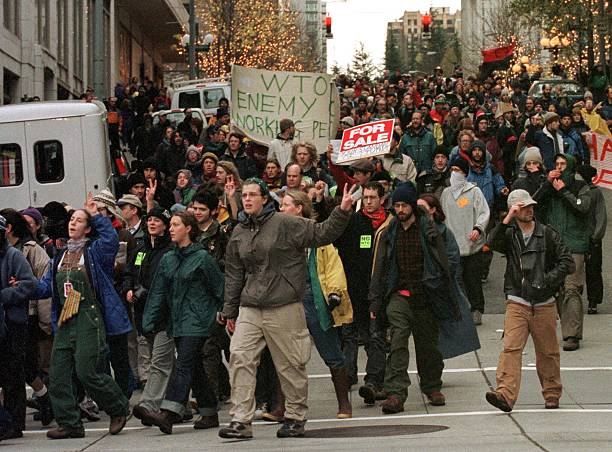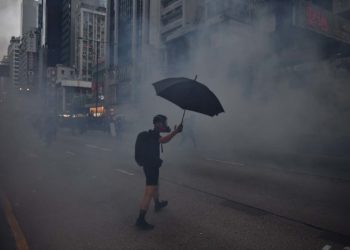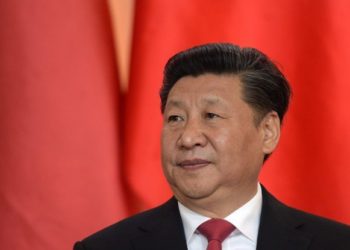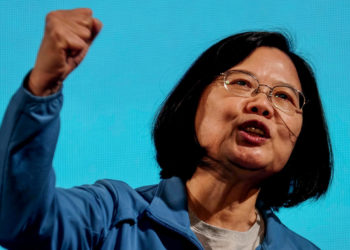In June 2018, the U.S. imposed 25 percent tariffs on steel and 10 percent on aluminum, prompting an unprecedented seven requests for World Trade Organization (WTO) adjudication, including from Canada and the European Union.
It can be argued that the U.S. metals levies helped to expedite the new North American trade deal known as USMCA, which wrested further trade concessions from Canada. At the same time, Donald J. Trump’s administration has been blocking new judicial appointments in WTO Appellate Panel, which threatens to cripple the most powerful enforcement procedures of any international agreement currently in force.
While the binding dispute settlement of WTO has been seen as a major bulwark against protectionism in international trade, the remarkably broad reach of the organization’s rules and their implications for a wide array of domestic policies also makes it a subject of concern. For instance, in resolving disputes over dumping and countervailing duties, every food safety, health or environmental law challenged at the WTO has been declared a barrier to trade, with very few exceptions.
Birth of WTO
Historically, despite being a non-binding treaty, WTO’s predecessor General Agreement on Tariffs and Trade (GATT) had managed to reduce average tariff levels from about 22 percent in 1947 to under 5 percent by 1996, although it is also important to remember that quotas and non-tariff trade barriers increased substantially during the same period.
Because of declining tariffs and transport costs, the volume of international trade exploded. Furthermore, enabled by technological adoption, the very definition of international trade expanded to include the exchange of goods, capital, and services. Hence, GATT’s mandate broadened, and its members decided to replace it with WTO in 1995.
WTO was expected to provide a firm institutional footing to international trade rules by facilitating the administration, implementation, and operation of multilateral trade agreements and negotiations. Most importantly, WTO handles trade disputes through its Dispute Settlement Body (DSB). Since 1996, over 550 disputes have been brought to DSB, and more than 350 rulings have been issued.
Is WTO Effective?
In its more than two decades long life, however, the only binding trade deal agreed by all WTO members has been the Trade Facilitation Agreement, for reducing bureaucracy at borders and improving customs procedures, which entered into force in 2017. Although some plurilateral deals have been reached – such as the Information Technology Agreement launched in 1996 and the Agreement on Government Procurement in 2014 – not all WTO members are parties to such agreements.
Efforts to update global trade rules have met with consistent opposition led by China and other emerging and developing countries, which remain suspicious of extensive liberalization. In fact, back in 1999, the so-called “Battle for Seattle” was premised on the argument that trade cannot be separated from issues such as environmental protection and labor practices, and that WTO should take responsibility for the associated costs of liberalized trade.

More recently, citing disagreements with the procedures and some of the DSB rulings, the U.S. has prevented vacancies in the seven-member Appellate Body from being filled for almost two years, which is now down to four members. Given that each dispute requires at least three members on the case, the possibility of any further decline in the Appellate Body’s size will paralyze DSB. Effectively then, while any progress with the updating of international trade rules remains stalled, the enforcement mechanism of WTO is being rendered dysfunctional at a time of renewed trade tensions.
Canada and the E.U. recently floated proposals to make the DSB more efficient and proposed new rules on investment, competition, tech transfer, and subsidies. Their lists of “like-minded partners” to push for WTO reform has so far excluded the U.S. and China. While much commentary has focussed on these notable absences, some larger questions remain ever more salient. Can WTO contain the escalation of a trade war? Can reforming WTO salvage the economic benefits of trade and ensure that prosperity is shared more widely? Is WTO still relevant?
Tricky Times
The international system is clearly facing a precarious moment where the U.S. appears to revert to a protectionist mode in response to the threats to its economic and political dominance, while the world’s two largest economies appear poised for a trade war.
We are also on the precipice of global climate breakdown, irreparable destruction of living and life-support systems, refugee/migrant crisis, and increasing economic and political inequality around the world. But whether you are a “free-trader” or a “fair-trader,” it is important to remember that the state remains the essential player in constructing the rules around which the “market” operates.
…..China has been taking advantage of the United States on Trade for many years. They also know that I am the one that knows how to stop it. There will be great and fast economic retaliation against China if our farmers, ranchers and/or industrial workers are targeted!
— Donald J. Trump (@realDonaldTrump) September 18, 2018
While free-traders might oppose state intervention on behalf of the environment or the vulnerable, they do not oppose the need for a strong state to protect private property, or create powerful organizations like the WTO to enforce free trade policies. With the growth of international trade, however, the expansion of the role of WTO has also made it an instrument of subverting and overriding domestic constitutions and public interest in imposing restrictions on the economic and political practices of member governments.
Also, there is a long history of the heavy influence of transnational business groups on policies and negotiations within the trade regime, as well as the secret “Green Room” decisions among small, handpicked caucuses of compliant countries rather than democratic decision making within WTO.
For WTO to remain relevant in the current context then, its reform has to ensure that the rules of international trade are not only employed to protect the property rights of transnational corporations and to limit the rights of states to intervene in their operations for social, environmental, and other concerns.
WTO reform needs to be more than about countering U.S. hegemony or avoiding a China-U.S. trade war. To restore its legitimacy and to resolve its crisis of cooperation, reform needs to be about accountability to the interests of ordinary citizens and the common good.
Disclaimer: The views and opinions expressed here are those of the author and do not necessarily reflect the editorial position of The Globe Post.



















